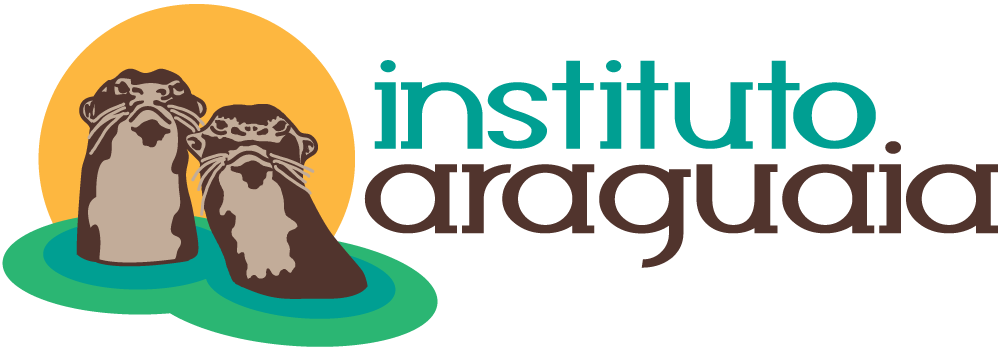About Instituto Araguaia
The Mission
To protect the biodiversity of the Araguaia River basin and its ecological processes, in particular inside and around Cantão State Park; to carry on scientific research and to disseminate scientific data that will contribute to the region's conservation; to develop and to implement a community outreach program that is economically and environmentally sustainable; to undertake the legal actions necessary to carry on our mission.
THE LOCATION
The region known as Cantão lies in the northernmost part of the Bananal Island´s alluvial plains. The area is a RAMSAR SITE. Satellite images show the Araguaia River and Ilha do Bananal as a large frontier between three biomes: to the East of the river lies the State of Tocantins, with its typical Cerrado vegetation of central Brazil, consisting of extensive native grasslands and pastures with scattered bush, palm tree and gallery forests; to the west of the Araguaia, in the State of Pará, the tall Amazon forest ends abruptely at the river’s edge; and towards the Southwest the Araguaia meets the Pantanal, in the State of Mato Grosso.
The 90.000-hectare Cantão State Park is located at 9.4186°S, 50.0001°W. In the State of Tocantins, a fairly well preserved sample of Cerrado reaches the edge of Rio do Côco, the park’s limits to the east. On the other side, in the State of Pará, the west bank of the Araguaia marks the sharp end of the Amazon dry land rainforest. Here, large portions of the forest have given place to pasture and farms. The shallow lakes formed during the dry season are the main characteristic of the alluvial plains of Cantão, congregating cayman, jabiru and other aquatic birds typical of the Pantanal, which co-exist with hoatzins and other birds typical do the Amazon.
Thus the ecosystem of Cantão State Park is comprised by a unique combination of animals and plants from three major biomes: the Cerrado, the Pantanal and – predominantly – the Amazon flooded forest. This distinguishing feature makes Cantão one of the most important protected areas within the Brazilian Amazon.
THE STORY
Discovery
We discovered Cantão in 1996, during a project to search for representative spots for the creation of parks in the Brazilian Amazon. When we entered Cantão for the first time, not only its natural beauty impressed us, but also its imposing forests, placid lakes and exceptionalabundance of fauna, in particular fish, aquatic reptiles, hoatzins (Opisthocomus hoazin), giant otters (Pteronura brasiliensis) and jaguar (Panthera onca). Considering the typical standards used for the Amazon, the abundance of fish, large mammals and birds in Cantão seemed to be much greater, comparable only to the most abundant areas in the Pantanal.
After visiting Cantão several times, we finally bought the only inholding in the park, whose owner did not concur with the new conservation rules. We have been working for the conservation of Cantão ever since. We work in conjunction with the Park authorities in order to prevent illegal fishing and poaching in the park. Without the former fish poaching, the rivers and lakes in the area are teeming with fish, and we have been observing a gradual increase of the population of several endangered animals, such as pink dolphins and giant otters.
Silvana Campello and George Georgiadis, founders of Instituto Araguaia
We believe that nature conservation can only be achieved if local stakeholders help implement conservation laws. Local driven initiatives combined with social pressure prove far more effective than centrally-planned law enforcements for conservation of parks. With this purpose in mind we have created the Instituto Araguaia.
Our accountability is clear and straight forward. 100% of our grants and donations go towards the protection of Cantão and to our Giant Otter Project. No overhead. Institutional funds do not cover personal expenses of our board. We are committed to giving our time, our resources and our professional skills to the protection of Cantão and to all it represents for our intricate planet.
Besides ourselves, the staff includes rangers and field assistants, a Biologist manager and local grantees conducting research. Our Technical Scientific Advisory Board* is comprised of prominent professionals with recognised expertise in their fields.
*for the list of members please consult our Progress Reports





